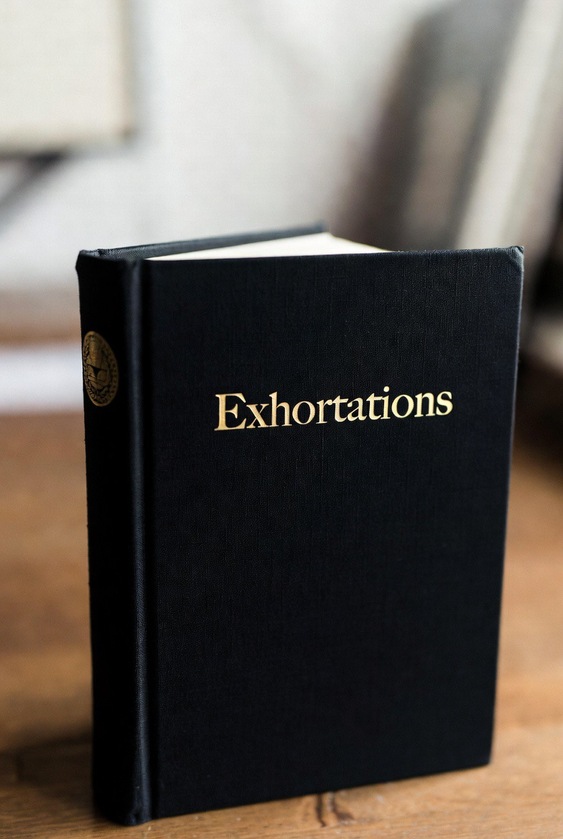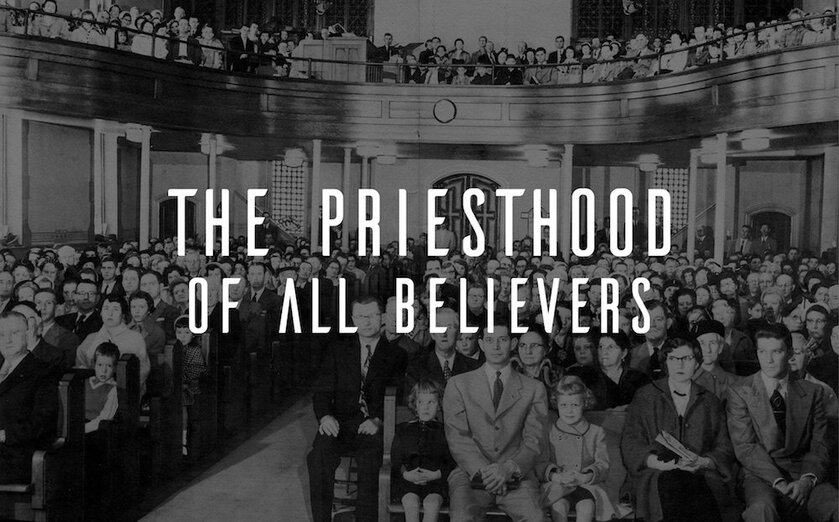Shadows of Tradition, Substance of Grace: Paul’s Pursuit of Unity in Acts 21
Acts 21:17-19
"When we had come to Jerusalem, the brothers received us gladly. On the following day Paul went in with us to James, and all the elders were present. After greeting them, he related one by one the things that God had done among the Gentiles through his ministry."
Paul returns to Jerusalem after his missionary journeys, where he’s warmly welcomed by the believers. He shares stories of God’s work among the Gentiles, and the leaders, James and the elders, praise God for it. Meanwhile there are many among the Jews, believers in Christ, who are also "zealous for the law". And these people aren't willing to abandon the Mosaic traditions, like circumcision and other cultural customs. So the new emerging church is still navigating the blend of Jewish heritage and their new found freedom in Christ.
These elders suggest Paul join four men in a Nazarite vow (from Numbers 6), purifying himself, shaving his head, paying their expenses, and completing the ritual in the temple. This public act of devotion would demonstrate that Paul honors the law, countering the misinformation without compromising the gospel. It’s an accommodation, showing a balanced approach to unity in diversity. It's what I would call "common ground". They're trying to keep from having an uproar. They want to honor God as best as they can without offending either the Jews or the new Christians. At the end of the day, Paul was applying his principle, being all things to all people (1 Corinthians 9:19-23). He understood what was happening among the Jewish Christians. He knew they were still trying to please God by adhering to the law, rather than attaining to the righteousness which is found fully in genuine faith in Jesus Christ. Keep in mind, from Paul's perspective these people were not truly saved.
Paul wrote about these things in Romans when he said,
Romans 10:1-4
"Brothers, my heart’s desire and prayer to God for them is that they may be saved. For I bear them witness that they have a zeal for God, but not according to knowledge. For, being ignorant of the righteousness of God, and seeking to establish their own, they did not submit to God’s righteousness. For Christ is the end of the law for righteousness to everyone who believes."
These Jewish Christians never came to it, they never found that full understanding of grace. Paul highlights a tragic irony: The Jewish zeal for God, evident in their adherence to Mosaic law and customs, is genuine but misguided because it bypasses the righteousness that comes through faith in Christ. We see these same things going on even today in many Christian communities. They’re striving to "establish their own" righteousness (v. 3), much like the Pharisees Jesus critiqued, instead of receiving the gift of God’s righteousness by grace. We call these things, "works theology". And Paul could sympathize with their beliefs having come from the same Pharisaical background.
Jesus taught a true separation from the religious systems that stray from genuine faith. Yet there were in that day thousands of followers of Jesus who were yet "zealous for the law,” and still navigating the transition from old covenant shadows to new covenant reality (Hebrews 10:1). Paul’s willingness to join the vow shows empathy, he knows this struggle intimately, but his ultimate aim is to point them toward faith’s freedom, not uphold the law’s burden.
Galatians 5:1
"For freedom Christ has set us free; stand firm therefore, and do not submit again to a yoke of slavery."
Paul had a deep dedication to the course God had set before him. He understood the challenges he would face, especially from within the Church. But he did not shrink from these difficulties. He didn't major on the minors in regard to some of these temple rituals. If participation in some traditions would enable him to reach an accord among the faith societies, he would do what needs to be done. He could break bread with them. He could even go so far as to fast, shave his head, and demonstrate his faith outwardly if that's what these people required. He didn't see these things as anything other than shadows of the true glory of God, but just the same he would play the part. He engages them strategically to build bridges.
But that really gets to the whole point of the truth of this situation What these things are, these traditions of men, they are play acting. These sacramental acts are mere shadows, not the substance of faith. Yet, in doing so, Paul models a gospel-centered flexibility that prioritizes unity and outreach over personal preference. It’s not about endorsing traditions as essential but using them as tools for accord. He could go to a certain extent because his identity was firmly rooted in Christ, not their rituals.
What about these things they wanted believers to do?
These "traditions of men" are indeed "play acting", outward forms that, without the heart of the gospel, become empty performances. Scripture reinforces this powerfully.
In Colossians 2:16-17, Paul writes:
"Therefore let no one pass judgment on you in questions of food and drink, or with regard to a festival or a new moon or a Sabbath. These are a shadow of the things to come, but the substance belongs to Christ."
So...why is it that we should at least understand the context of these things? Why even dwell on these topics?
The old covenant rituals pointed forward to Jesus, like shadows cast by the real light. Once the substance arrives, clinging to those shadows can distract from the Light's true glory. Why even come to terms with these people?
Jesus Himself exposed this in Mark 7:6-8, quoting Isaiah:
"This people honors me with their lips, but their heart is far from me; in vain do they worship me, teaching as doctrines the commandments of men."
He critiques the Pharisees’ handwashing rituals not because hygiene is wrong, but because they elevated human traditions above God’s commands, which effectively nullifies His word.
Paul’s actions in Acts 21 avoid this pitfall, he participates without letting rituals define true righteousness, always pointing to faith in Christ as the true path. He doesn't neglect the truth.
Conclusion:
In essence, Paul discerns the difference: Shadows can serve as props in this "play", or the ritualistic display of ministry, aiding in communicating the devotion and worship across many divides, but these traditions must never overshadow the Director, God Himself. This frees us from legalism while honoring others’ faith journeys. Like Paul, we focus on our God-given course. When church conflicts arise (doctrinal debates, cultural clashes), ask:
Does this "major on the minors"?
Ask yourself, "can we find common ground".
Ultimately will these things prioritize the gospel’s advance.
In relationships or communities, be willing to "play the part" if it builds unity, attending an ecumenical service, respecting customs, while holding firm to grace. It’s not hypocrisy; it’s love in action (Romans 14:1-6). I can participate with respect and if it comes up in conversation I'm going to be very honest and open about how I feel about these practices. I see them as mere shadows, even though I know they see the glory of God in these things. So, I'm empathetic to their shortcomings, but I do absolutely see these things as shortcomings. I see no true value in these practices except as a means to grace for seekers maybe. Unfortunately for many, these things become a lifetime of seeking as Paul explained in Romans 10:1-4.
Paul urges us to build up, not tear down, even when we see practices as mere shadows. Recognize that for some, these traditions feel like glimpses of God’s glory, yet gently pointing to the fuller light found in Christ's word of grace. The ultimate goal is graduation to freedom in Christ. Unfortunately, many will always get stuck in perpetual seeking, missing the rest Jesus offers. Satan is sifting us all like wheat, there's nothing anyone can do but look to Jesus. Looking at tradition, buildings, furniture, decorations or even the glory of God found in nature itself can do nothing to save them. Only the founder of our faith can accomplish that.
As Hebrews 12:1-2 urges,
"Let us also lay aside every weight…looking to Jesus, the founder and perfecter of our faith."
May this reflection strengthen your devotion today, helping you advance the gospel with love, honesty, and freedom.
Prayer:
Blessed are You, Adonai our God, Ruler of the Universe, who grants us wisdom to discern shadows from substance, and grace to build unity among Your people through faith in Messiah. May we, like Paul, become all things to all, that Your gospel may advance in love and truth. Amen.




















